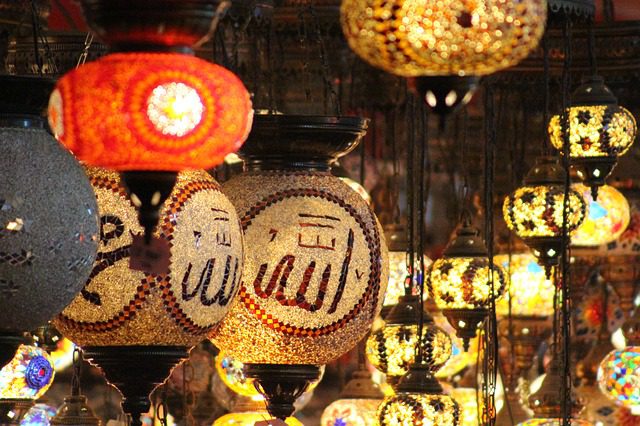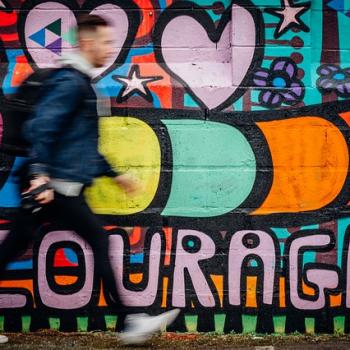
This is Day 10 of the 2018 #30Days30Writers Ramadan series.
Do you every wonder how many of our rituals simply started out as practical solutions to an immediate problem, but then evolved into a ritual or even an obligatory practice?
Consider the famous Zen story of the ritual cat:
Once upon a time a spiritual teacher and his disciples were meditating when a cat, who lived in the monastery, made so much noise that it disrupted their concentration. So, the teacher ordered that the cat be tied up during their meditation practice.
Years later, after the teacher died, the cat continued to be tied up during every meditation session. And when the cat died, another cat was brought in the monastery and tied up. Many centuries later, learned scholars of the spiritual teacher wrote treatises about the religious importance of tying up a cat for meditation practice.
One way to interpret this story is to conclude that blind faith in a tradition is what happens when we neglect to parse out which elements of a custom are significant, and which are irrelevant and merely a function of circumstances that no longer exist.
It also illustrates the inherent psychological need to feel that some things are not bound by circumstances or reality. We simply must perform them exactly as our ancestors did until they evolve the status of religious practice.
There is this subconscious conviction that if we do something the same exact way irrespective of context, irrespective of time and space, irrespective of circumstance, we will be confirming our own immortality.
After all, what cannot be destroyed by the contingencies of life cannot be destroyed by the finality of death.
When we approach our rituals with this attitude, religious practices — like prayer, lighting a candle, observing the Sabbath, or fasting during Ramadan — allow us to escape from the limitations of practical existence. They become an act of defiance against an objective reality in exchange for one that carries greater meaning.
Rituals are not designed to fulfill a practical purpose but rather to divorce and disconnect us from practical considerations. They are the pause button to a mind conditioned to operate according to its default mode — logic. As beings endowed with intellect, blind faith expressed in an act of devotion and worship devoid of any practical reward is the ultimate act of humility. Rituals keep us grounded because they keep us humble.
The holy month of Ramadan is an especially good opportunity for this kind of exercise, because it is a prolonged ritual and not a fleeting chore. Like the after burn of a good workout, fasting for a whole month allows us to reap the benefits far after we cease to perform the exercise.
In a world where absolutely everything from the cellular to the universal is always changing and never stagnant, rituals offer us the only constant in the constantly changing.
But Ramadan, like all religious rituals, has its share of traditions with questionable origins. Rituals that start out being implemented for practical reasons but are now evolving more symbolic meaning.
To illustrate this point, I will choose a very uncontroversial tradition to act as our frame of reference for how this process works. Take, for example, the symbol of Ramadan in the Middle East — the fanoos, or lantern. Every Ramadan, decorative lanterns are hung from homes and shops all over the streets of Arab countries, like Egypt.
Accounts differ as to how it came to be associated with Ramadan, but all appear to stretch back to the 10th century when the Fatimid Caliphate ruled much of the Muslim world from Egypt.
In one account, a Fatimid caliph is said to have banned women from leaving their homes all year long, except during Ramadan when they could step outside accompanied by boys carrying lanterns to light their way. Some also say the Fatimid rulers ordered the use of lanterns on Ramadan nights by Cairo residents, because they served a practical purpose of providing light.
With the advent of electricity, the lantern is now merely ornamental. But the tradition remains.
In an age where traditions are often the first to be consistently challenged as an obstacle to modernity or are being dismissed as cultural with no religious connotations, a new appreciation for the role they play in keeping us civilized needs to be emphasized.
Rituals develop organically, and if they are ceremonial and not driven by practical outcomes, they should be celebrated and generationally preserved.
If ever there was a time when we should be overtly ceremonial and creative, it is in now, when ceremony and tradition are being routinely undermined. Rituals contribute to the spiritual ambiance of an otherwise bland existence. For American Muslims, this may mean giving presents instead of money at Eid ul Fitr time, suhoor at IHOP, not the roof top, and kanafa and baklawa galore. Because that is one sacred tradition that will never ever die.













